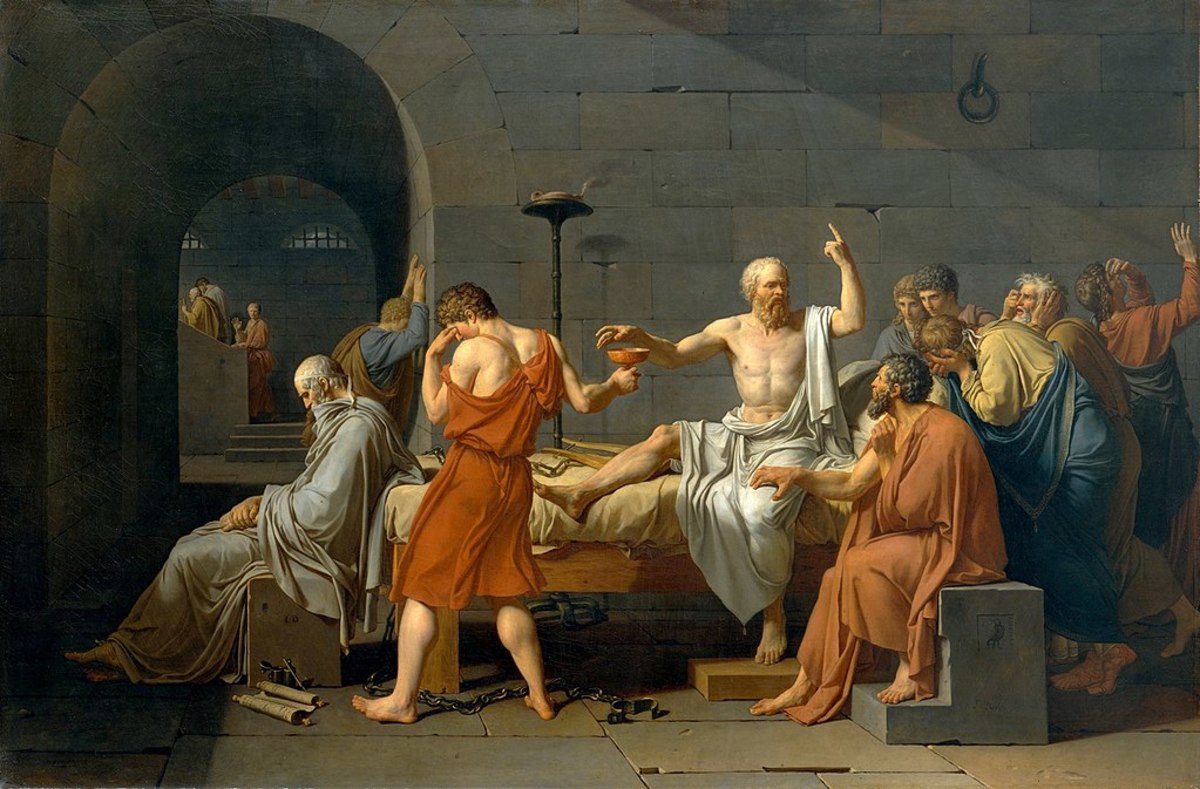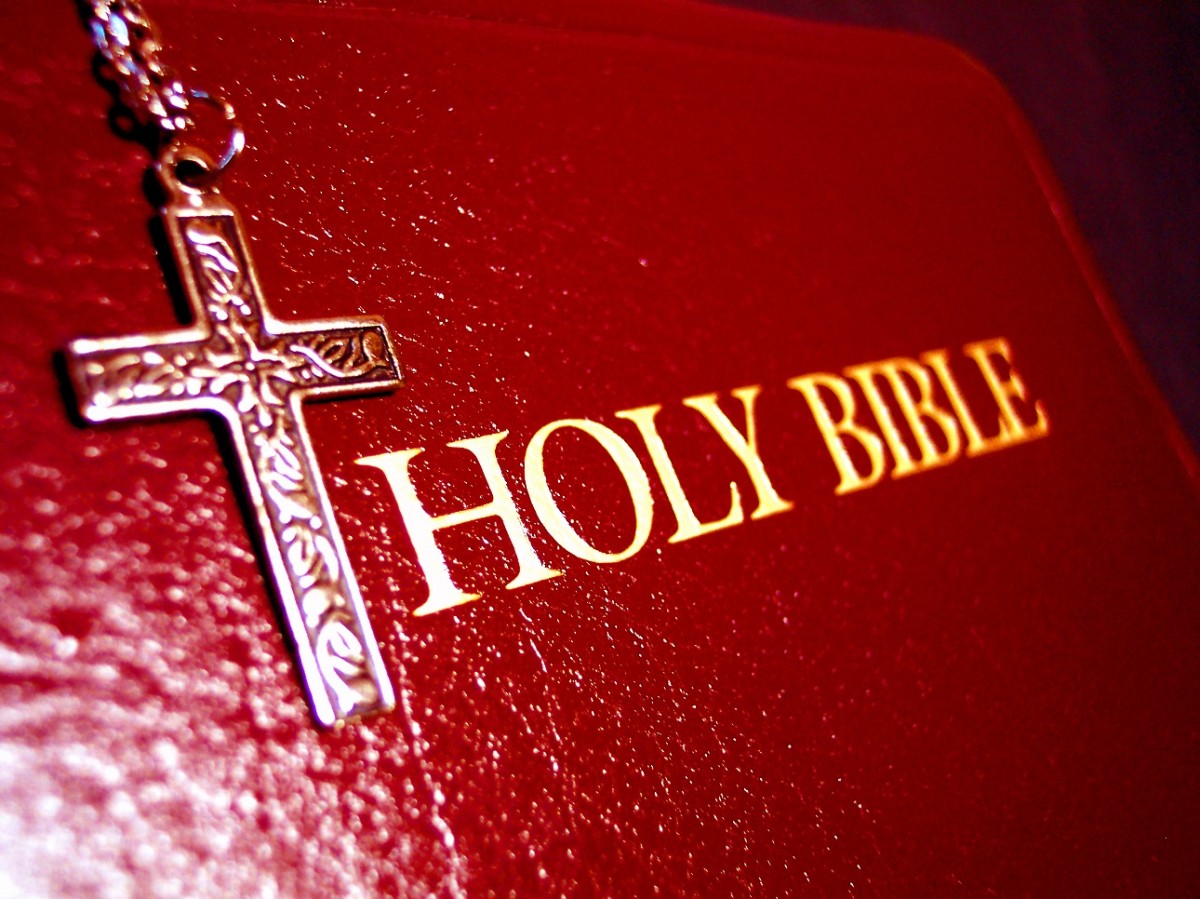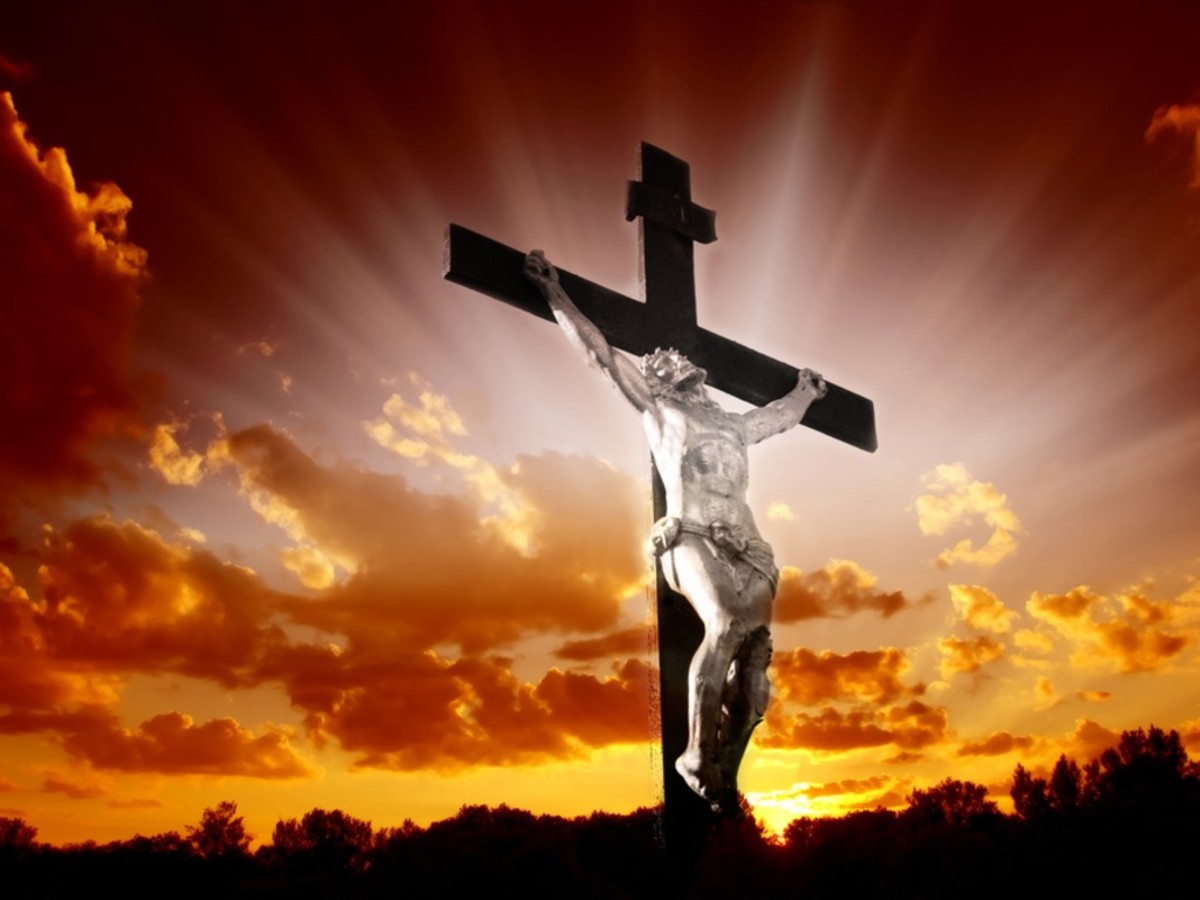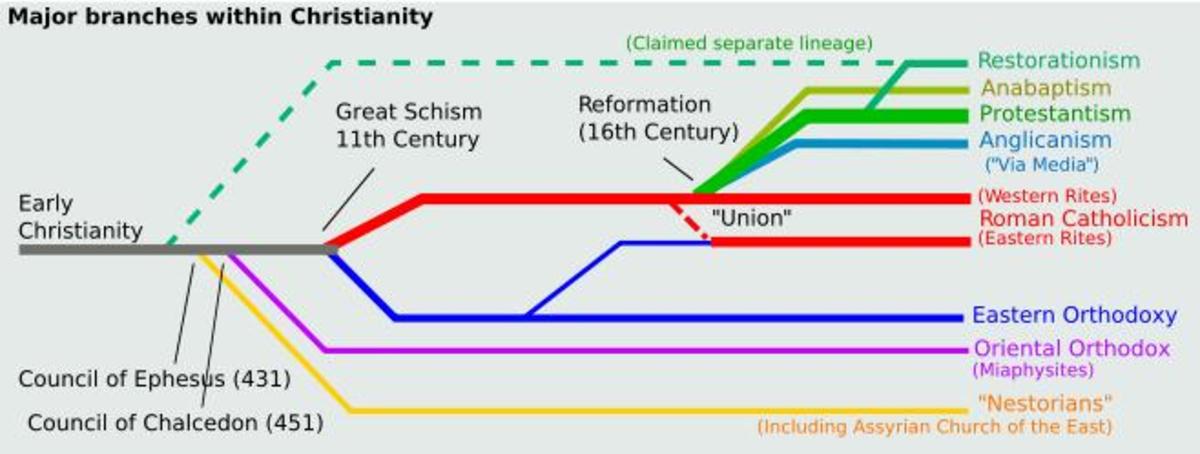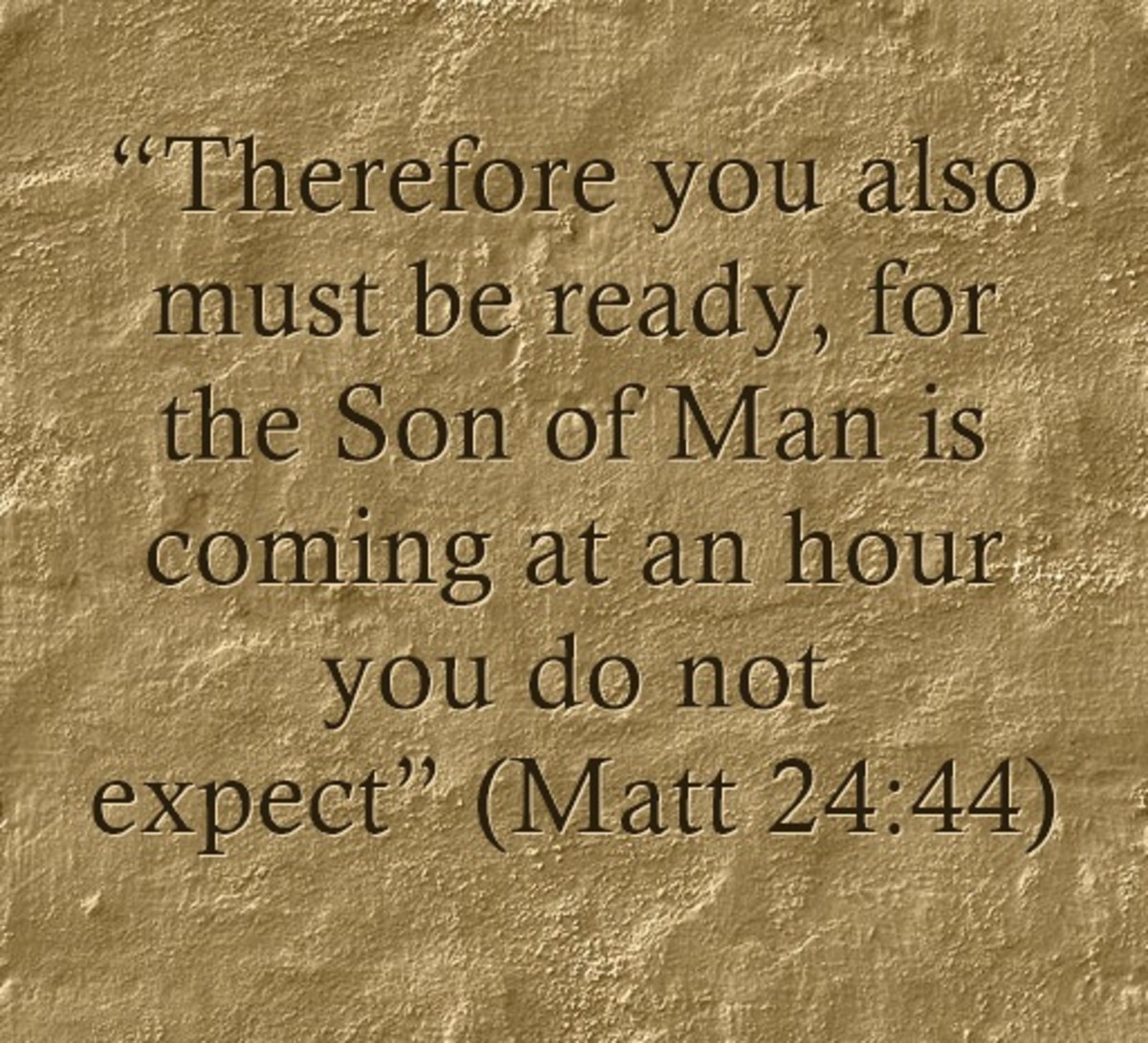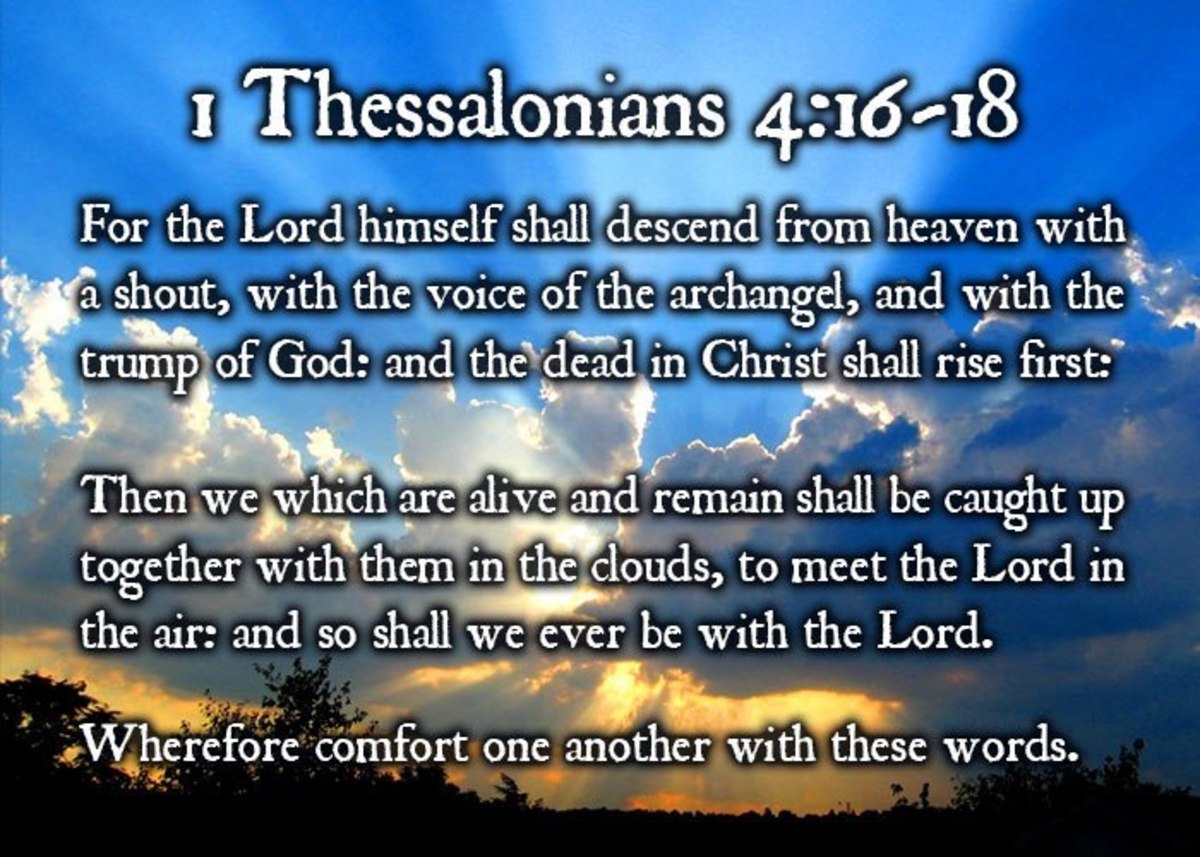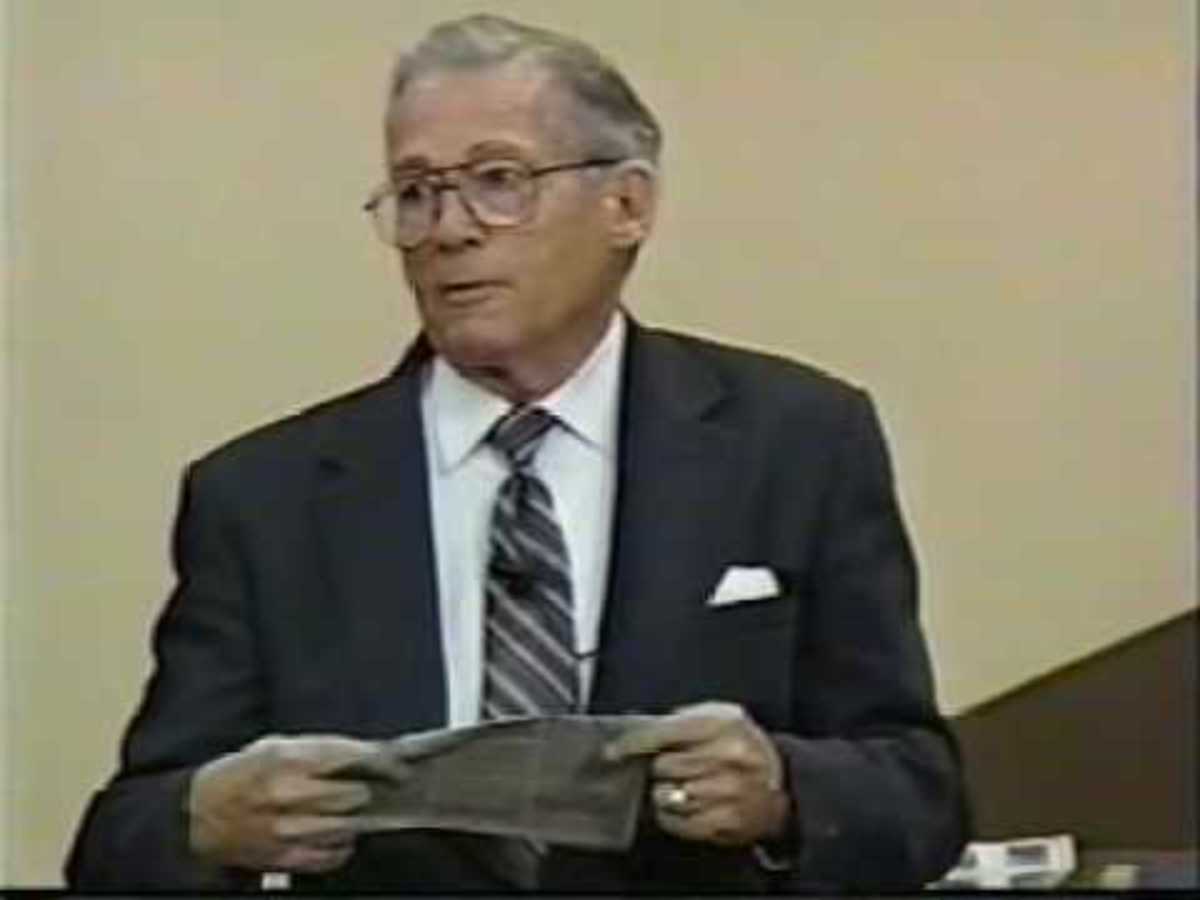Apostasy: Have It Your Way
From Jesus to Peter
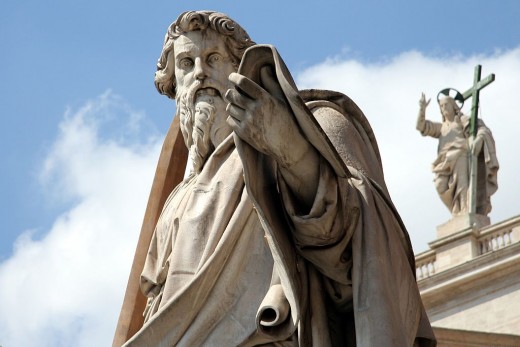
Other People's Faith
Usually other people's money is the focus of attention. But that is so yesterday. Look at the current election -- a billionaire is in the running. Another first! We used to think that if a President were rich, he would be past the common denominator, not joining the tug and pull of the hoi polloi, slogging it out in the muck and mud, inebriated and foul-tongued, for nickels and dimes. But now we deal with an obscene amount of money in the wallet of a single man. Still, that is what the system produces, for reasons not entirely baffling. Certainly, the IRS could tell you, play by play, dollar by dollar, transaction by transaction, how it happens. It is no big deal. Not next to the idea of attending the true church, promoting the true religion, so that true faith is not misplaced. It is, on the one hand, entirely subjective. Nobody knows for sure. On the other, there are scriptural passages and historical facts that support one concept over another.
If you are not into it, then you are not into it. Simple as that. Some people do not like religion -- any religion. Others cannot see themselves except contextualized within a particular denomination. They cannot be apart, on their own, exercising free will, getting into trouble, somehow, with both their peers and, if you like, their betters, invisible to the eye. I have a couple of books, each of which tends toward one position or the other. But I have also mingled with both sets of people. There is no agreement between the two, but no argument. There cannot be one. It would only be a waste of time. Their minds are made up. In reality, the whole affair is none of my business. But it is in the nature of Christianity itself to keep looking, especially for people, to engage their minds, and, quite often against their initial will, get them to vocalize just exactly where they stand.
Salt Lake City Temple Square
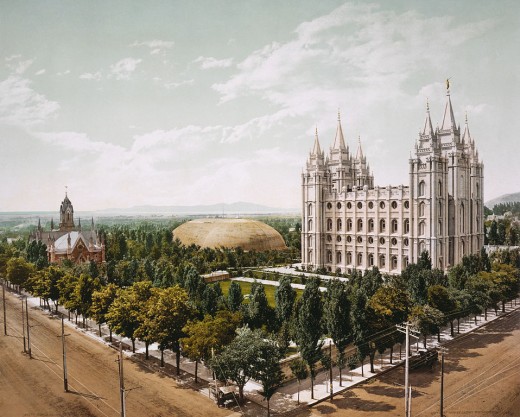
Who's In? Who's Out?
I can only comment on two religions, both of which I only have a modicum of personal history with. First there is the Catholic Church, with a population of over a billion members, and the LDS Church, totaling more than 15 million. If this figure is not a computer error, it loosely equals the world's Jewish population, mostly in Israel and the United States. The Muslim population is also, like the Catholic, over a billion, and slightly larger. The overall Western Christian population is double that of Catholics only. Thus, only a tiny fraction of three plus billion people, possibly, are the least bit concerned with a theological scuffle that has to do with the early church. The introduction of a later church that makes an identical claim does not take place until over 1800 years later. Eastern Christianity, by the way, adds 75 million more Christians, largely self-contained.
The good part is that neither one of the two opponents are interested in hearing their adversaries out. Jews do not generally deal with Jesus, nor do Muslims have much to contribute, raising the Prophet Mohammad above all else. Semitic influences, once essential, are wearing thinner. The political landscape has lately been overwhelming. Many subscribe to points of view that currently destabilize the Middle East. I am addressing a much more passive, motley, and disinterested group. Catholic apostasy, to exemplify, is just that, an internal disorder. It consists of contention, usually against its more liberal activists. Why is this important? It is not, unless you get caught in Christian headwinds. Mormon apostasy is not dissimilar, though it is centered more on loss of faith than championing reform.
For both, there is a ready-made solution, which is to ignore the whole issue altogether. It is the most popular choice. Step into almost any church and the sermon or talk will likely as not center on the same old same old. Again! The Samaritan woman at the well. Again! The heated exchange about the precious oil. Again! The hurried escape into Egypt. I wonder about this phenomenon in my quiet hours, if I have nothing else in mind. Christian religions mainly dwell, Sunday after Sunday, on a finite amount of events, as well as their unique profundities, occurring within, or derived from, the span of literally a handful of years.
But not quite. The Book of Mormon has to do with Christianity in the Americas. It does not start with the Nina, Pinta, and Santa Maria of Columbus, but the Babylonian Exile of 600 B.C. To have escaped the exile by means of sea vessels is not impossible. However, the book is filled with names, places, and events that are not corroborated by the accepted canon, which forbids adding or subtracting. Nevertheless, the sheer number of tangled theologies that have resulted over the years complement rather than detract from the defiant Mormon position. Pandemonium cannot be the sole consequence, not if truth were the arbitrator. The Book merely asks that consideration be given to the faulty notion of God having left out an entire hemisphere. Taking this lapse into account, the Book states indirectly how no established theology can be fully authentic. The Book is, if nothing else, probably the best religious writing on the subject of covenanting. Still, the Far East, despite the successes of Catholicism in Japan, is largely immune to the whole of Judeo-Christianity, no matter how sweet a verbal frosting its people might put on it.
The Old Gods
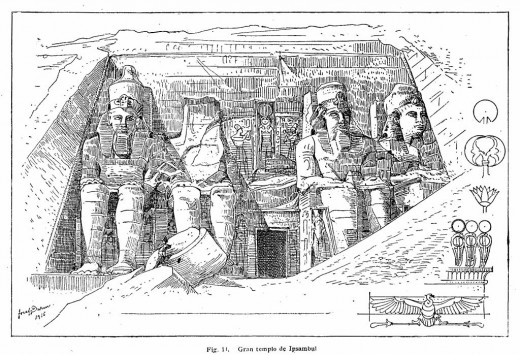
The Historical Trajectory
Part of what makes the Muslim religion fascinating is how fast it spread and how many it converted, very late in the historical record. Being unfamiliar with the Koran, I could not myself grant it legitimacy, especially in today's milieu, in which Christians find themselves under constant attack. There is an understanding of the excesses of the 700s that cannot be extended to 2016. But the fact that so many people, basically pagans, embraced a genuine Abrahamic religion, shows, or seems to show, Man and God at work together. This has nothing to do with the subject of apostasy except to touch upon how historical events either help firm up or serve to dismiss the authoritarianism of a church. Lest it be forgot, Islam regards itself as the only religion. For its members, one is either Islamic or an Infidel.
History was what once differentiated the Jewish religion in a more mythological world where idols representing non-existent creatures -- often part-animal, part-human -- were commonplace. However, the ancient world did not stand still. By the time of Jesus, Herod, and Pilate, as well as so many other Dramatis Personae, times had changed. Three hundred years later, at the famous Council of Nicaea, a Roman Emperor would see to it that the Church of Peter became an institution to contend with rather than a haphazard collection of wayward thinkers, including Arius, condemned and sent into exile. The latter point is interesting, knowing the barbarism of punishment in the Roman Empire, and how a more painful remedy might have been applied to heresy. Arianism and its anti-trinitarianism was a controversy that had to be overcome.
It took a long while to assemble these clerics, who decided the foundation for believers throughout the centuries to follow. It gave its approval to a trinity that no one could adequately explain, and ultimately displeased later theologians, who, for generations, dared not utter their grievances. Among the disputes is that of marriage in the priesthood, which derives largely from Paul, leading to a point in favor of Catholicism, insofar as the essential books of the New Testament had already been assembled. The opposition cites the Council's edict against marriage as part of a trend leading away from true faith toward unacceptable practices, such as deliberate, bodily self-deprivation. To them, without going into gory details, there was only apostasy, not a church.
1492 -- The Discovery That Wasn't

Christianity Without a Rudder
In the fourth century, many more rebellious actions were not yet even contemplated. Discontent reaches a boiling point in The Brothers Karamazov, by Fyodor Dostoyevsky, where one brother, with an intellectual and theological bent, imagines the return of Christ during the Inquisition. In his revery, Jesus is sentenced to death. The system no longer requires Him. In fact, there is no place for Him at all. I occasionally watch a televangelist I like speak glowingly of the return of Christ to Jerusalem and the initiation of a thousand year reign of triumph and tranquility. I do not quite believe it. Surely not war-torn Jerusalem! Nor Vatican City, for that matter, still too close to the ineradicable violence. I could see Him more sensibly sequestered in the mountains of Utah, not that I prefer the Mormon to the Catholic. I am merely expressing a concern for basic safety and security. We sometimes think that He will come back as a comic book superhero. Both churches can be rather bombastic and outrageous about what "surely" shall come to pass. The larger point, I think, is how vital disbelief is in addition to belief. One must be strong in the latter, but faith requires the former, too. One cannot believe the assertions of every single religion. It is, in any case, not my call if the so-called Universal Church, once rooted in the Roman Empire, is to be granted a lasting, final victory over its critics.
Criticism is not lacking, too. It comes from within and without. Celibacy, women priests, and, homosexuality, is debated. One can be liberal without supporting any of these issues, since there are many more to choose from. To claim universality, however, requires unpopular measures of restraint and caution. To Mormons, their church constitutes a restoration. To Catholics, as always, their church is apostolic, harkening back to the origins of Christianity in Christ Himself and His apostles. It has papal infallibility, too. Why get into this at all if you aren't already? It has its audience, readership, and assortment of interested -- that is as much as I can say with some assurance of keeping it real.
Eternal Discord
Criticism continues long after Constantine's Council. Critics complain about infant baptism and mystical communion. In 855 AD, the Patriarch, heading the Eastern sector, breaks with the Pope, still attached to Rome. Squabbles intensify when errors in religious practice become the means by which monetary compensation is collected. Indulgences supposedly reduced the severity of penances. Now, there are those who want to modernize church practice. Dissenters refer to "a past which no longer exists". That past includes underpopulation rather than a world in which more people often means greater misery. It depends. Even China -- atheist, scientific, and more reverent toward Mao Zedong than Jesus -- has waffled on legislation appertaining to childbirth per family unit. Then, to bring dissension back home, freedom of religion in America, so highly touted, has lately resulted in an ugly public forum. Owing to the media it consists of severe insults aimed at one congregation by another. Or, mudslinging individuals. Let us then say, in conclusion, that apostasy is not just a spat between two churches. There are others, too, I am unable to bring into the discussion. It is therefore much more complicated than I have let on.
The Layman's Predicament
This is my own, personal gripe. I cannot realistically master the intricasies of priesthood, especially in terms of comparative religion, in addition to all else. For most, there is no anguish. One is born into a religion. One dies within the sweet confines of the same. It will tell you what to do, what to think, even what to say. Two entries in the family bible and that's that. Interestingly, one reads in the history of the early church leading to the Nicaean Council, how lacking in ritual Christianity began. Compared to the Jewish religion, Christian worship was too simple. Pagans were also more advanced. Jewish rituals actually increased since the advent of Christ to account for yet more seminal events. For instance, Christians remark upon Christ's prophecy predicting the destruction of the temple; Jews annually commemorate it. But lo and behold, Christianity has caught up. Have it your way -- true or not, apostasy or not, and Christian or not -- though I think the world is lost without Christianity. Like so much else, I leave it to heaven.
The Black Hills of South Dakota


